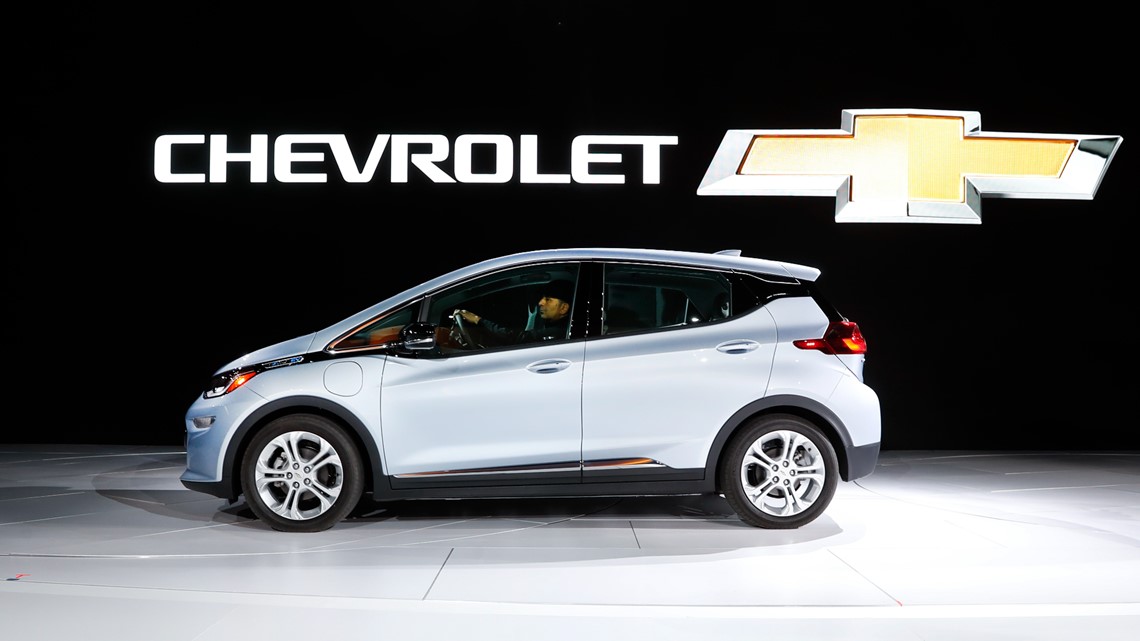DETROIT — Strong sales in the U.S. helped General Motors increase its first-quarter net profit 19% over a year ago, leading the company to raise its full-year profit guidance based on expectations demand for its vehicles will remain robust.
The Detroit automaker made $2.37 billion from January through March, up from $1.99 billion in the previous year.
Excluding a $900 million charge to pay severance packages to about 5,000 white-collar workers who took buyouts during the quarter, GM made $2.21 per share, soundly beating analyst estimates of $1.72, according to FactSet.
Revenue for the quarter came in just shy of $40 billion, up 11% from a year ago and beating projections for $38.55 billion.
The company, after the strong start to the year, raised its pretax profit guidance for 2023 to a range of $11 billion to $13 billion. Previously it was $10.5 billion to $12.5 billion.
CEO Mary Barra also announced that GM will stop building the electric Chevrolet Bolt hatchback and small SUV by the end of this year. The Bolt is now GM's top selling EV, but the plant north of Detroit that builds it is being converted to make electric trucks.


Shares of General Motors Co. rose 2% before the opening bell Tuesday.
Chief Financial Officer Paul Jacobson wouldn't make a prediction about a recession this year, but he forecast strong demand through December.
“Overall, April remains really strong for us,” he said. “So we're confident we'll be able to hit this higher guidance.”
GM already is seeing benefits from the buyouts, and Jacobson said a projected $1 billion annual savings also will help the company this year.
Although GM's average transaction price dropped slightly, prices remained strong as sales in the U.S., GM's most lucrative market, rose almost 18% during the quarter. The average price paid for a GM vehicle in the U.S. was $50,263, down $490 from a year ago.
“We will have a little bit of a challenge as we lap last year's pricing increases through this year,” Jacobson said, adding that new models GM is introducing should help with pricing and demand.
He said he doesn't see any reason for GM to match multiple electric vehicle price cuts announced this year by market leader Tesla.
“We feel good about where we're priced right now, and consumers seem to be really demanding our products,” he said.
GM expects several new electric vehicle models to raise sales this year, fueling a large increase in sales. The company expects to build 400,000 EVs between 2022 and the first half of 2024. In the first quarter, GM sold only 20,670 EVs, still good enough to get it into the No. 2 spot behind Tesla.
Also on Tuesday, GM and South Korea’s Samsung SDI said that they plan to invest more than $3 billion in a new electric vehicle battery cell plant in the United States. The location is unknown, but the companies plan to begin operations there in 2026.
GM and Samsung SDI plan to jointly operate the factory, which is expected to make nickel-rich prismatic and cylindrical cells. The companies said it was expected to create thousands of jobs.
A global shortage of computer chips and other parts forced the auto industry to slow production last year, driving up prices as demand stayed strong. But the parts shortages and production are starting to improve. GM's inventory at the end of March rose 50% from the same time a year ago to 412,000.
GM's pretax profits in North America rose 14% for the quarter to $3.58 billion. But its income from China fell 64% to $83 million. Jacobson said the company has new gasoline and electric vehicles coming, but he doesn't expect income to improve until the second half of the year.

